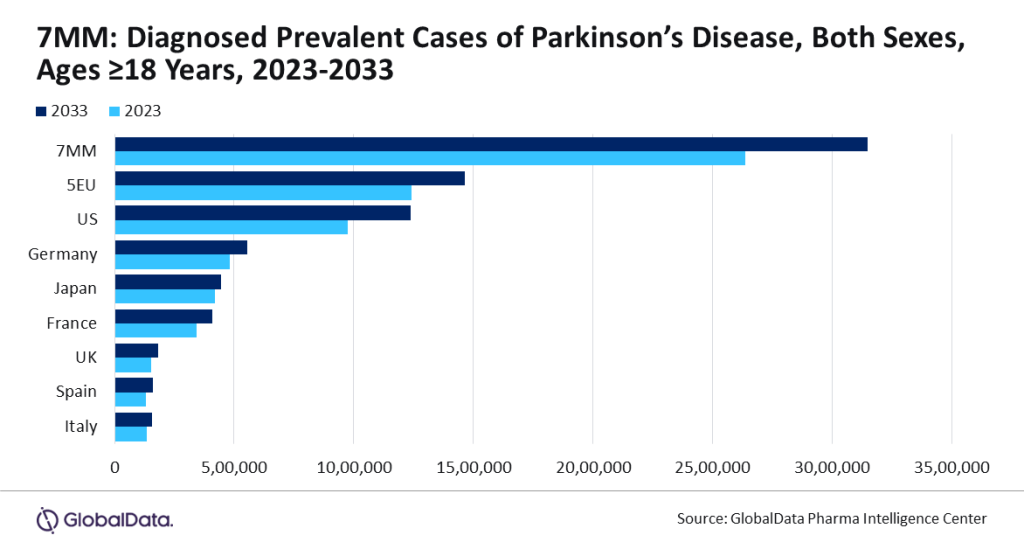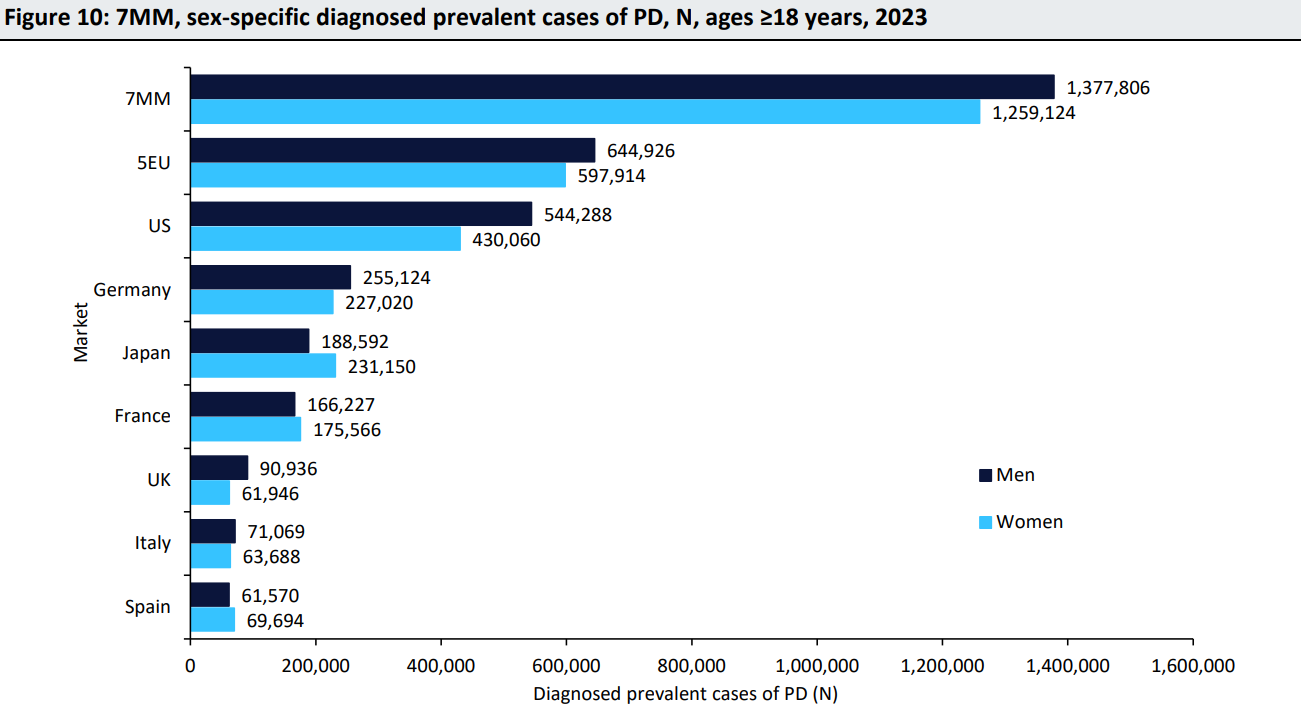
Diagnosed prevalent cases of Parkinson’s disease (PD) in the seven major markets (7MM) of the US, the 5EU (France, Germany, Italy, Spain, the UK) and Japan will grow at an annual rate of 1.94% between 2023 and 2033, a new report forecasts.
The findings in GlobalData’s Parkinson’s Disease Epidemiology Analysis and Forecast report indicate that this would equate to a rise in cases from 2.64 million in 2023 to 3.15 million cases in 2033.
The report also forecasts that, by 2033, the US will have the highest number of diagnosed prevalent cases of Parkinson’s in the 7MM with 1.24 million. Italy will have the lowest number, with just under 160,000 cases.
GlobalData is the parent company of Pharmaceutical Technology.

Rahul Ravi, senior epidemiologist at GlobalData commented: “In 2023, adults aged 60 and older accounted for over 90% of diagnosed prevalent cases of PD in the 7MM while adults aged 18–39 made up less than 1%. This age distribution aligns with findings showing higher PD prevalence among older populations.
“There is a slight predominance of sex-specific diagnosed prevalent cases favouring men. Differences across the sexes and markets may be mostly attributed to differences in the underlying demographic differences in each market, as well as the significant differences in sex-specific diagnosed prevalence.”
Access the most comprehensive Company Profiles on the market, powered by GlobalData. Save hours of research. Gain competitive edge.

Your download email will arrive shortly
We are confident about the unique quality of our Company Profiles. However, we want you to make the most beneficial decision for your business, so we offer a free sample that you can download by submitting the below form
By GlobalData
The report expands on Ravi’s point on the relationship between sex and diagnosed prevalent cases of PD. It states that in 2023, 52.25% of cases were in men, compared to 47.75% cases in women.

Among the 7MM, the biggest difference was evident in the UK, where 59.48% of cases were in men compared to 40.42% in women. France had the smallest variation and saw diagnoses favour women with 51.37% compared to 48.63% of cases being in men.
The report states: “An environmental or genetic factor significantly associated with men in the US and the 5EU, and with women in Japan, could account for this difference.”
PD is the second most common chronic progressive neurodegenerative disorder amongst older people, after Alzheimer’s disease. GlobalData’s report found that 39.07% of diagnosed prevalent cases of PD in the 7MM were in adults aged 80 or older. The next biggest age bracket was the 70-79 year-old group, which represented 38.01%.
Ravi concluded: “PD is among the most common chronic, progressive neurodegenerative disorders affecting the elderly population. As PD predominantly impacts older adults, countries with growing ageing populations must develop strategies to address the healthcare needs of individuals with PD. Over the next decade, the 7MM is expected to be crucial for PD treatment due to their ageing populations.”

